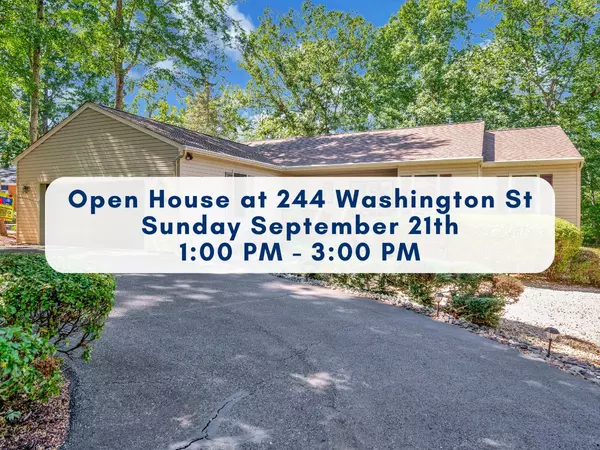What Does a Title Company Do When You're Buying or Selling a Home in Virginia

What Does a Title Company Do When You're Buying or Selling a Home in Virginia?
If you're buying or selling a home—especially for the first time—it can feel like you're stepping into a world filled with new terms, acronyms, tons of paperwork, and people you've never heard of before. One of those key players? The title company.
Whether you're a first-time home buyer, a military family PCSing to Virginia, a land buyer exploring rural options, or a seller looking for a fast, smooth closing—understanding what a title company does can help you feel more confident and in control of your real estate journey.
Let’s break down the essential role of a title company, why it matters to you, and how it helps ensure your deal closes cleanly and legally. Plus, I’ll share how working with the right professionals can protect your investment—and your peace of mind.

What is a Title Company (and Why Do You Need One)?
When your home goes under contract, there’s a LOT happening behind the scenes. And one of the most important pieces of that puzzle is handled by the title company—sometimes called a settlement company or real estate attorney, depending on your location and preference.
Their main job? To make sure you get (or give) clear ownership of the property and that the transaction follows all legal procedures.
They’re the ones who:
-
Hold your earnest money deposit
-
Research the property’s ownership history
-
Clear any liens or issues
-
Issue title insurance
-
Prepare and manage closing documents
Let’s unpack each one—and why it matters to you.
Holding the EMD (Earnest Money Deposit)
You’ve probably heard your agent mention “EMD,” but what is it?
EMD stands for earnest money deposit—a good-faith payment that shows you’re serious about buying the home. It’s typically 1–3% of the purchase price and is submitted soon after your offer is accepted.
Why It Matters:
This money needs to be handled by a neutral third party—not the buyer or seller—to protect both sides of the deal. That’s where the title company comes in.
They’ll hold your deposit safely until closing or until it’s released according to the terms of the real estate contract. You don’t want any funny business with your funds, and the title company ensures full transparency and legal compliance accordnig to Virgina law.
✅ Pro Tip: If the deal falls through due to a contingency like "home inspection" or "septic inspection", the title company returns your deposit. But if you default on the contract, the seller may have a right to keep it. So keep in touch with your agent and make sure you meet your deadlines!
Researching Property Ownership (a.k.a. the Title Search)
Once your contract is signed and the earnest money is in place, the title company gets to work on the title search. This importaint step involves digging into public records to trace the property's ownership history all the way back—sometimes even decades.
They’re looking for:
-
Chain of title: Has ownership passed legally from one person to another?
-
Errors in public records (misspelled names, incorrect lot sizes)
-
Gaps in documentation that could affect ownership
Why It Matters:
You don’t want to buy a home only to find out someone else has a legal claim to it. The title search makes sure you’re buying what you think you’re buying—free from any shady history or legal surprises.
Uncovering and Clearing Property Liens
Next up: liens. These are legal claims against a property, usually for unpaid debts.
Common examples include:
-
Mortgage liens
-
Tax liens
-
Mechanic’s liens (from unpaid contractors)
-
HOA or utility liens
These are often referred to as “clouds on title”—and a title company works hard to clear them before closing.
Why It Matters:
You want to take ownership of your new home free and clear. That means no hidden debts, no legal entanglements, and no problems that could bite you later.
The title company coordinates with all the right parties—like lenders, the IRS, or HOAs—to ensure all debts are paid off and the title is clean before you close.
Issuing Title Insurance
Once the title is confirmed to be clean, the title company can issue title insurance.
There are two types:
-
Lender’s Title Insurance – Required by your mortgage lender to protect their investment
-
Owner’s Title Insurance – Optional, but highly recommended to protect your ownership rights
Why It Matters:
Even with a detailed title search, some issues might slip through the cracks—like forgery, unknown heirs, or mistakes in public records.
If something pops up later and someone challenges your ownership, title insurance steps in to protect you. It could cover your legal fees or even reimburse you for losses.
✅ Pro Tip: Owner’s title insurance is a one-time cost and usually only a few hundred dollars—but it can save you thousands in the long run. I always recommend it to my clients because peace of mind is priceless.
Preparing the Closing Documents
Here’s where everything comes together—closing day.
Your title company coordinates the entire closing process, which includes:
-
Preparing your loan documents (if applicable)
-
Creating a closing disclosure that breaks down all the costs
-
Getting signatures on all the legal documents
-
Collecting funds from all parties
-
Recording the new deed with the local courthouse
They act as the "quarterback" of the final step, working with your agent, lender, and sometimes even your attorney to make sure nothing slips through the cracks.
Why It Matters:
The final paperwork is what makes your home purchase official. Without it, you don’t legally own your new home. A great title company ensures everything is signed, sealed, delivered—and recorded properly with the county.
Final Thoughts: The Right People Make All the Difference
Buying or selling a home isn’t just a transaction—it’s a life-changing decision. It involves big emotions, big investments, and big responsibilities. And while the process can feel overwhelming at times, it becomes so much easier when you’re backed by a team of professionals who genuinely care about your success. From holding your earnest money to ensuring you’re protected by title insurance, the title company plays a vital role in making sure your real estate experience is safe, smooth, and stress-free. But here’s the thing: you don’t have to figure it all out on your own.
Whether you’re purchasing your first home, relocating to Virginia for military service, buying land, or preparing to sell your current home—partnering with the right REALTOR®, lender, and title company makes all the difference. It's not just about closing a deal; it's about protecting your future, your finances, and your peace of mind. When you work with someone who knows the local market, has trusted relationships with top title companies, and takes the time to guide you step by step—you’re not just getting through the process… you’re thriving through it.
Categories
Recent Posts











Buying a home isn’t just a financial decision—it’s a deeply personal journey filled with hopes, dreams, and big life changes. That’s why choosing the right real estate professional is one of the most important steps you can take.
A knowledgeable and experienced REALTOR® does more than open doors and write offers. They’re your advocate, your problem-solver, and your steady guide through what can sometimes feel like an overwhelming process. Whether it's navigating a competitive market, negotiating on your behalf, or keeping things on track behind the scenes, the right agent is there to protect your interests every step of the way.
In the end, buying a home should be an empowering experience. With the right person by your side—someone who brings both expertise and heart—you can move forward with confidence, knowing you're in good hands with Sean Jones.
GET MORE INFORMATION
